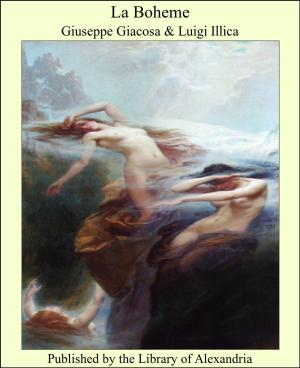The Story of the Solar System
Nonfiction, Religion & Spirituality, New Age, History, Fiction & Literature| Author: | George Frederick Chambers | ISBN: | 9781465608611 |
| Publisher: | Library of Alexandria | Publication: | March 8, 2015 |
| Imprint: | Language: | English |
| Author: | George Frederick Chambers |
| ISBN: | 9781465608611 |
| Publisher: | Library of Alexandria |
| Publication: | March 8, 2015 |
| Imprint: | |
| Language: | English |
By the term “Solar System” it is to be understood that an Astronomer, speaking from the standpoint of an inhabitant of the Earth, wishes to refer to that object, the Sun, which is to him the material and visible centre of life and heat and control, and also to those bodies dependent on the Sun which circulate round it at various distances, deriving their light and heat from the Sun, and known as planets and comets. The statement just made may be regarded as a general truth, but as the strictest accuracy on scientific matters is of the utmost importance, a trivial reservation must perhaps be put upon the foregoing broad assertion. There is some reason for thinking that possibly one of the planets (Jupiter) possesses a little inherent light of its own which is not borrowed from the Sun; whilst of the comets it must certainly be said that, as a rule, they shine with intrinsic, not borrowed light. Respecting these reservations more hereafter. The planets are divided into “primary” and “secondary.” By a “primary” planet we mean one which directly circulates round the Sun; by a “secondary” planet we mean one which in the first instance circulates round a primary planet, and therefore only in a secondary sense circulates round the Sun. The planets are also “major” or “minor”; this, however, is only a distinction of size. The secondary planets are usually termed “satellites,” or, very often, in popular language, “moons,” because they own allegiance to their respective primaries just as our Moon—the Moon—does to the Earth. But the use of the term “moon” is inconvenient, and it is better to stick to “satellite.” There is yet another method of classifying the planets which has its advantages. They are sometimes divided into “inferior” and “superior.” The “inferior” planets are those which travel round the Sun in orbits which are inside the Earth’s orbit; the “superior” planets are those whose orbits are outside the Earth.
By the term “Solar System” it is to be understood that an Astronomer, speaking from the standpoint of an inhabitant of the Earth, wishes to refer to that object, the Sun, which is to him the material and visible centre of life and heat and control, and also to those bodies dependent on the Sun which circulate round it at various distances, deriving their light and heat from the Sun, and known as planets and comets. The statement just made may be regarded as a general truth, but as the strictest accuracy on scientific matters is of the utmost importance, a trivial reservation must perhaps be put upon the foregoing broad assertion. There is some reason for thinking that possibly one of the planets (Jupiter) possesses a little inherent light of its own which is not borrowed from the Sun; whilst of the comets it must certainly be said that, as a rule, they shine with intrinsic, not borrowed light. Respecting these reservations more hereafter. The planets are divided into “primary” and “secondary.” By a “primary” planet we mean one which directly circulates round the Sun; by a “secondary” planet we mean one which in the first instance circulates round a primary planet, and therefore only in a secondary sense circulates round the Sun. The planets are also “major” or “minor”; this, however, is only a distinction of size. The secondary planets are usually termed “satellites,” or, very often, in popular language, “moons,” because they own allegiance to their respective primaries just as our Moon—the Moon—does to the Earth. But the use of the term “moon” is inconvenient, and it is better to stick to “satellite.” There is yet another method of classifying the planets which has its advantages. They are sometimes divided into “inferior” and “superior.” The “inferior” planets are those which travel round the Sun in orbits which are inside the Earth’s orbit; the “superior” planets are those whose orbits are outside the Earth.















